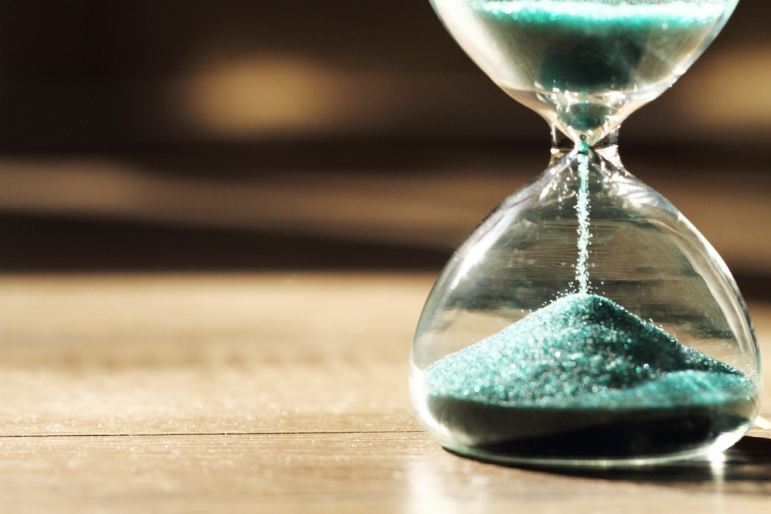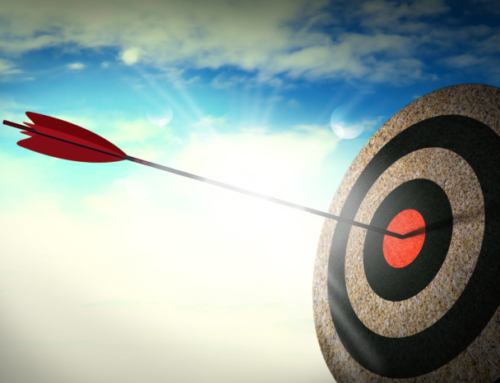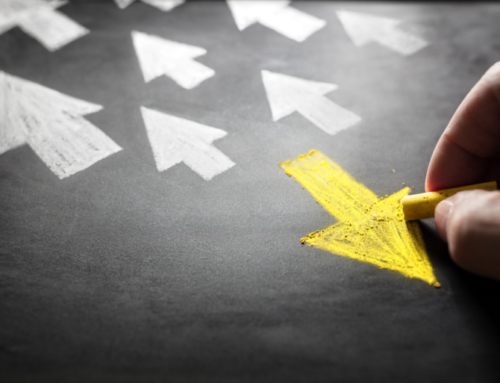One useful idea is to consider “wasted time” as a category separate from leisure time. A common mistake is to conflate the two and to feel guilty about time spent on leisure and even to try to decrease that time. I argue for the opposite: by decreasing wasted time we open some minutes or hours to spend more usefully, including on increased leisure time.
This is Method C in the series “Stop Making Yourself Miserable.” (Check out Method A here and Method B here.)
Wasted time occurs within all other categories. We waste time while working, engaging in home or family activities, during leisure time, during exercise and other well-being activities, and perhaps even when trying to sleep. Wasted time occurs when:
- None of your (daily or life) goals are advanced and
- You feel worse after having spent the time on that activity
Let me differentiate leisure time from wasted time: leisure time is time spent on any activity that refreshes, allows us to express ourselves, or builds our mastery and understanding in any area not directly related to our profession. Leisure time includes time spent taking a long relaxing bath, listening to music, going to a concert or show, traveling, playing sports, having sex or engaging in romance, reading, visiting a museum, knitting, woodworking, cooking, and gardening. Leisure time gets to the heart of who we are. I believe the word “leisure” undervalues its importance: leisure may be the time during which we are most who we are meant to be, when we are most aligned with our values, and when we most strongly express ourselves. Leisure activities may even lead to outcomes that can change the world – or our corner of it – as when a person converts a hobby into a business or other organization.
Wasted time, in contradistinction, does not refresh us, build our mastery or understanding to any great degree, does not bring us pleasure, and does not advance our career, family, or personal goals. It’s easiest to identify wasted time afterward: you feel worse, unfulfilled, and icky as if you just gulped down a pint of ice cream.
How do YOU waste time when you think you’re engaged in leisure time? Here are common examples from my life:
- Bingeing on social media
- Mindlessly reading news articles
- Channel surfing
- Binge-watching some “ok” series on streaming media
- Spending time with people I don’t like or people I like but who do nothing but bring me and everyone else down. (Some people spend most of their time complaining, blaming, and interpreting things in the most negative way with nary a thought on how to make things better. Do THEY enjoy this type of talk? Perhaps. The more important question is, do you?)
Notice that many of the above activities are not particularly awful and in moderation, they may be calming or allow for a needed mental break. I certainly enjoy time on Netflix. The problem arises when that refreshing moment turns into two hours or three or more, and leads to feeling worse – more enervated, amotivated, anxious, irritated, depressed, or frustrated.
So why do we do spend time on activities that waste our precious time? Here are some candidate motivations and ways of overcoming them:
- It is easy to confuse wasted time with leisure time and tell oneself that “I deserve to relax.” Of course you do. That’s why I advocate leisure time which leaves you feeling better rather than worse, that makes you feel you’re closer to your goal, whether that is to master a new skill, grow closer to someone important to you, or make a positive impact on your kids.
- Wasting time occurs when procrastinating. Procrastination poisons the time we spend not doing what we’re putting off. It’s all downside – feeling bad and preoccupied – with no upside – the work does not get done. Quick tip to overcome procrastination: 1) start by viewing and establishing the scope of work, 2) break down the task into smaller components, and 3) return the next day to tackle one small component. Rinse and repeat.
What are practical ways of reducing wasted time:
- If you have problems sleeping through the night, start by reviewing sleep hygiene measures. Also, if I wake up at 3-4 am and feel wide awake, I get up and read for half an hour. I usually sleep well when I return to bed. I don’t stress about tossing and turning for an hour in the middle of the night, and I got a little useful reading done.
- If you waste time on your medical charting, review how to reduce that time. Learn what data NEEDS to be included and what data you’re including that may be of limited importance. (Write me if you think there is something I can do to help with improving your charting.)
- If you spend too much time on food prep, consider weekly meal prep you do before the start of the work week. Just search for “weekly meal prep ideas” and you’ll learn everything you need to know. This bulk preparation allows a person to save time AND control the food quality and ingredients they’re feeding to themselves and their family.
- If you spend too much time waiting for elevators, take the stairs every time. You may even beat the people waiting for the elevator while converting those minutes of wasted time into exercise. Will spending 2 minutes on your smartphone (like everyone else milling around the elevator doors) make you feel better? Probably not.
Let me know if you have anything on your mind I might be able to help with. Write in with your advice on how to lead a more productive, invigorating, and joyful day.
Thanks. Until next time.
Dr. Jack
LanguageBrief
“It is named the “Web” for good reason.” – David Foster Wallace
“How tragic it is to find that an entire lifetime is wasted in pursuit of distractions while purpose is neglected.” – Sunday Adelaja
“Sometimes exhaustion is not a result of too much time spent on something, but of knowing that in its place, no time is spent on something else.” – Joyce Rachelle
“The price of anything is the amount of life you exchange for it.” – Henry David Thoreau“How we spend our days is, of course, how we spend our lives.” – Annie Dillard







Leave A Comment